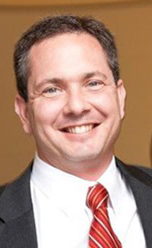Hiroshima and Nagasaki: Re-Evaluating the Atomic Bomb and the Last Days of WWII
Overview
Everyone knows the debate: did “the bomb” end World War II? More specifically, were the Japanese already on the verge of calling it quits, or did the United States need to destroy yet more Japanese cities in August of 1945 to force Japan’s surrender? Put another way: Did newly sworn-in U.S. President Harry S. Truman make the right call?
It’s now nearly four generations since the first and only times atomic weapons were ever deployed in war, and the small number of those still alive who can recall 1945 is rapidly shrinking every day. What does new scholarship, new thinking, and new perspectives on the chaotic end of the largest and bloodiest war in human history reveal? And with the world facing, yet again, the prospect of nuclear warfare in Ukraine, North Korea, Kashmir, or Taiwan, is it finally time to end this ever-present, and ever-vexing, debate with the past?


